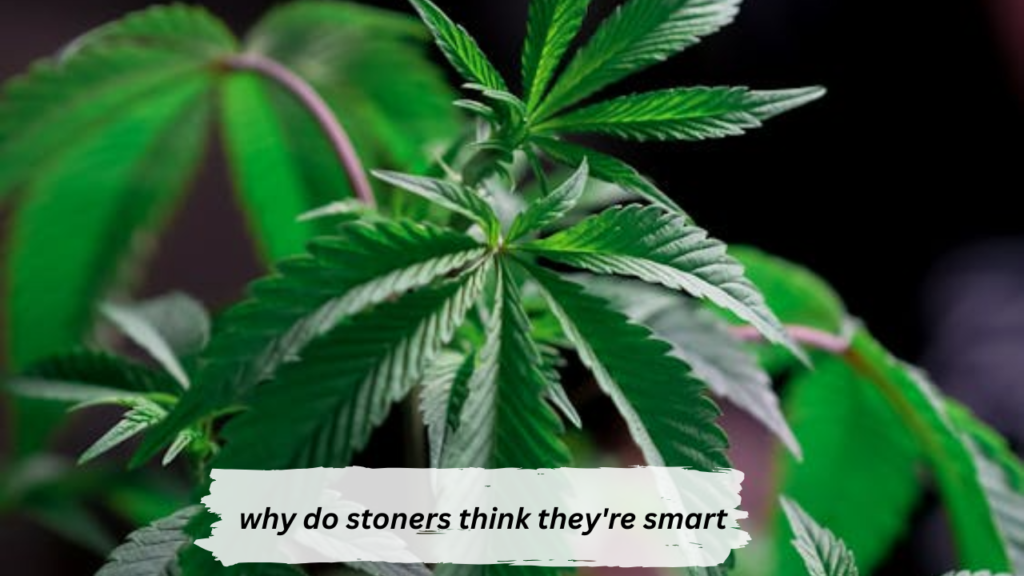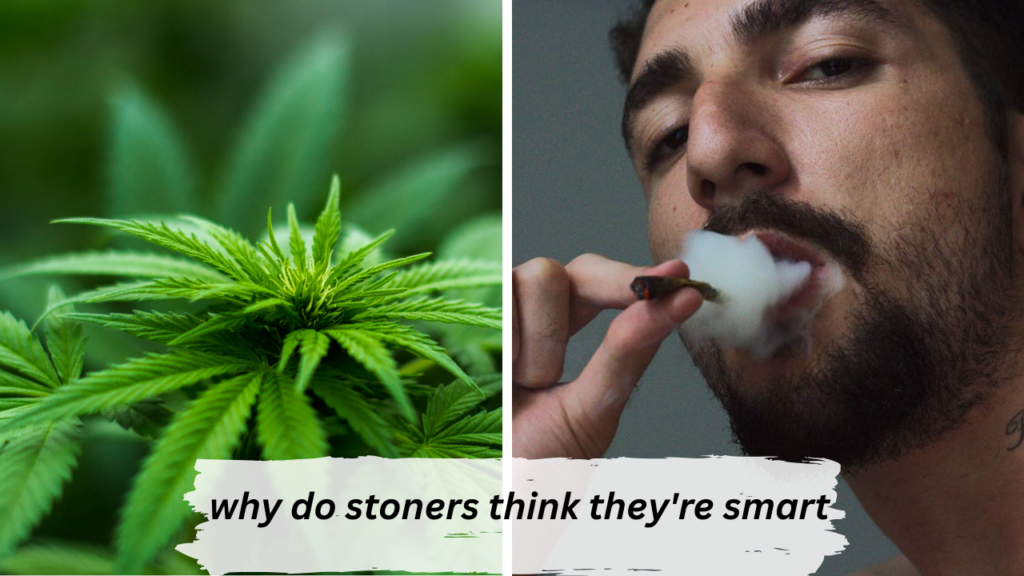Introduction
It’s a familiar scene: a group of friends passes around a joint, and soon one of them starts spouting what they believe is a life-altering theory about the universe, consciousness, or time travel. They’re not joking. They genuinely feel like a genius in that moment. This leads to the question—why do stoners think they’re smart?
This perception isn’t just a stoner stereotype—it’s an experience that many cannabis users describe. But is it rooted in reality? Or is it simply a mind trick brought on by THC? This article explores the science, psychology, and cultural ideas behind the belief, separating subjective highs from objective facts.
The “Highdea” Effect: When Ideas Feel Deep
Cannabis users often talk about having “highdeas”—thoughts or insights that seem incredibly profound while high. These mental moments can feel like epiphanies, but they’re often mundane upon sober reflection.
This feeling comes from how THC (tetrahydrocannabinol), the psychoactive compound in cannabis, interacts with the brain. THC binds to receptors in the frontal cortex, a region responsible for abstract thinking, decision-making, and creativity. As a result, new neural connections form in unusual patterns. This creates novel ideas, abstract associations, and a sense of originality—even when the logic doesn’t quite add up.
So, why do stoners think they’re smart? Because their brains are literally firing in unfamiliar ways. These unusual patterns trick the mind into thinking a new perspective equals deeper intelligence.
The Science of Cognitive Function on Cannabis
Science has tried to catch up with this cultural phenomenon. Research shows that while cannabis may enhance subjective creativity, it does not actually improve intelligence or cognitive performance. In fact, heavy and chronic use can lead to the opposite.
A number of studies highlight the negative cognitive effects of long-term cannabis use, especially in adolescents. Memory, executive function, and attention are often impaired. Repeated use during developmental years has been linked to lower IQ scores over time. Cannabis affects working memory, making it harder to retain and manipulate information even when the user believes they’re doing great mentally.
This creates a gap between perception and reality. People feel sharper, more insightful—but their cognitive abilities may actually be declining in measurable ways.

Smart vs. Lazy: Challenging the Stereotype
Media has long painted cannabis users with broad strokes. On one side, there’s the classic “lazy stoner”—slouched on the couch, wasting time. On the other, especially in modern portrayals, is the “enlightened stoner”—creative, philosophical, and sharp-witted.
This duality feeds into the question of why do stoners think they’re smart. Pop culture plays a role in reinforcing both extremes. Movies, TV shows, and even social media posts glamorize cannabis use as a gateway to brilliance. In contrast, traditional narratives demonize it as a path to apathy.
However, newer studies are starting to reject both ends of the spectrum. Research suggests that cannabis use alone does not significantly decrease motivation. Many high-functioning individuals, including artists, writers, and tech innovators, report using cannabis either recreationally or creatively. This has added complexity to the cultural image of the “stoner” and blurred the lines between lazy and smart.
The Psychology of Feeling Smarter
Perception plays a major role in why do stoners think they’re smart. Cannabis often enhances introspection, mindfulness, and emotional awareness. A user may become deeply immersed in a thought, examining it from different angles. This level of focus, although fueled by altered brain chemistry, feels like intellectual mastery.
Another factor is self-esteem. Cannabis can reduce stress and anxiety, making people feel more confident and capable. Combined with novel thoughts and reduced inhibition, this creates a psychological state where ideas flow freely—and users become convinced they’re having intellectual breakthroughs.
But here’s the catch: this introspective journey doesn’t always lead to accurate conclusions. In fact, overconfidence in one’s cognitive ability while high is common. The mind believes it has solved complex problems, even if those “solutions” fall apart under sober scrutiny

Not All Highs Are Equal
To fully understand why do stoners think they’re smart, it’s important to consider the different factors that shape each person’s experience. Not everyone reacts the same way to cannabis. Several elements affect the cognitive impact:
- THC vs. CBD Levels: High-THC strains are more likely to produce altered thinking and a feeling of mental expansion. High-CBD strains tend to be calming and less psychoactive.
- Dosage: A small dose may enhance focus and mood. A high dose can cause confusion or anxiety.
- Strain Type: Sativa strains are associated with energetic, creative highs. Indica strains are typically more relaxing and sedating.
- User Experience: First-time users may be overwhelmed. Regular users often develop tolerance, altering the intensity and type of high.
- Environment: A peaceful, thought-provoking setting can encourage introspection, while a chaotic one may lead to paranoia or confusion.
- Individual Biology: Age, metabolism, brain chemistry, and mental health all influence how cannabis is processed and experienced.
This complexity explains why one person might write poetry after smoking, while another struggles to finish a sentence.
Reality Check: Insight or Illusion?
The truth behind why do stoners think they’re smart lies in the split between how things feel and how they are. The brain on cannabis can trick itself into believing it’s more intelligent, more creative, more aware. But outside the haze, many of these thoughts lose their shine.
That doesn’t mean the experience is meaningless. For many, cannabis offers a temporary shift in perception that encourages reflection, emotional clarity, and alternative thinking. These effects can be valuable—even if they’re not proof of genius.
What matters is understanding the difference between feeling smart and being smart. Both have value, but only one stands up under pressure.

Conclusion
So, why do stoners think they’re smart? Because cannabis changes the way the brain processes thoughts, emotions, and stimuli. It creates a heightened sense of awareness, lowers inhibition, and makes ordinary ideas feel extraordinary. This combination is powerful—and often deceiving.
While cannabis can provide moments of clarity and introspection, real intelligence isn’t just about how thoughts feel. It’s about logic, memory, application, and consistency—areas where cannabis can sometimes impair rather than improve.
Still, the stoner’s belief in their own mental brilliance is more than just a joke. It’s a reflection of the brain’s complex response to THC and how easily altered perception can become personal truth.
In the end, intelligence is more than a feeling—but feelings can shape how smart we believe we are.
If you’re still wondering why do stoners think they’re smart, remember: it’s not always about the answers they give. Sometimes, it’s the questions they dare to ask while high that reveal the most.
FAQs
Why do highly intelligent people smoke?
Some intelligent individuals use cannabis for creativity, stress relief, or enhanced introspection, not necessarily for escape.
Do stoners age faster?
There’s no solid evidence that cannabis causes faster aging, but heavy use may affect health indirectly through lifestyle choices.
What is stoner personality?
A “stoner personality” often refers to someone laid-back, introspective, creative, and relaxed, though this varies widely.
What happens to a stoner’s brain?
THC alters brain activity by affecting memory, mood, and perception, sometimes enhancing creativity but impairing short-term memory.
Can you be smarter when high?
You might feel smarter due to increased abstract thinking, but studies show no actual boost in intelligence—just altered perception.

